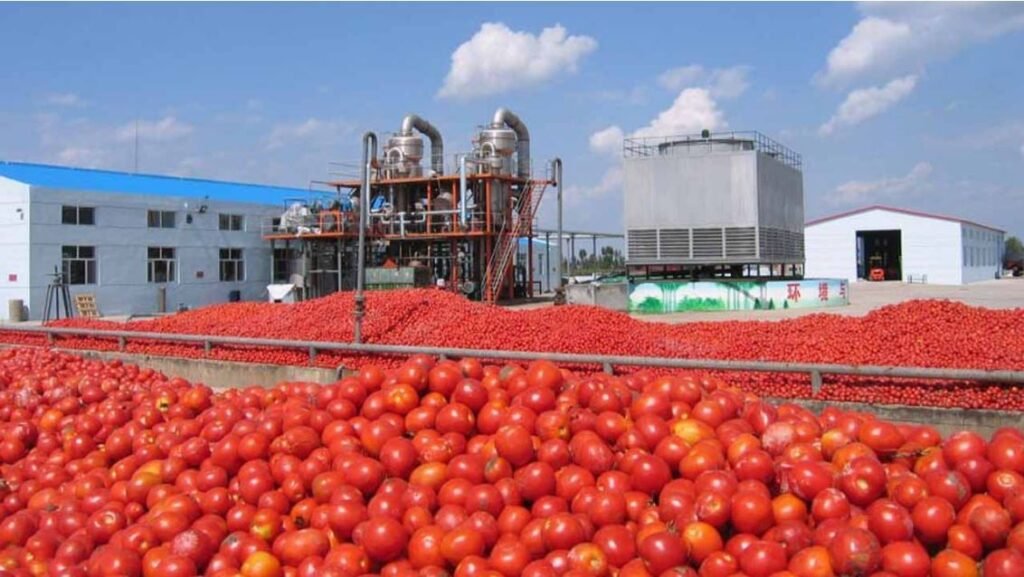In April 2025, the African Development Bank (AFDB) began mobilising $2.2 billion to establish Special Agro-Industrial Processing Zones (SAPZs) across 28 states in Nigeria. This development, according to AFDB, if fully implemented, will boost food security, minimising post-harvest losses, and creating employment opportunities by scheduling processing facilities closer to farming communities.
Akinwumi Adesina, President of AfDB, announced that the funding requirements for the project would soon be presented to the AfDB board for approval.
“We have been able, I would like to say, to mobilise $2.2 billion in investment interest to support the second phase across Nigeria,” he stated.
According to him, institutions such as the Arab Bank for Economic Development in Africa, the Africa Export-Import Bank, agri-investment fintech Sahara Farms, as well as French and U.S.-based organisations, are among those contributing to the funding effort.
Since independence in 1960, Nigeria’s agricultural sector has played a significant role in driving economic growth and development. Prior to the discovery and exploitation of petroleum, the country relied heavily on revenue from agricultural exports to finance the growth of other sectors. Given its strategic importance to national development, the agricultural sector has consistently remained a focus of government policy and investment.
Over the last 10 years, the sector has consistently served a pivotal role in Nigeria’s economy, contributing significantly to the nation’s Gross Domestic Product (GDP). For instance, in 2019, with 25 percent, agriculture accounted for over a quarter of Nigeria’s total GDP. This was a reflection of the sector’s traditional importance to the economy, particularly in rural employment and food supply. Crop production was the dominant subsector, with relatively stable output.
Despite the outbreak of COVID-19 pandemic in 2020, the agriculture’s share of GDP increased slightly, with 26 percent. This growth was partly due to the relative resilience of food production and demand during lockdowns. The sector served as a cushion for economic shock, maintaining its vital role in national sustenance.
However, the agriculture sector has been on a gradual decline in terms of GDP contribution since 2020, despite being a focus of multiple government interventions. The downward trend began in 2022. The sector’s GDP contribution dropped by over 2 percent from 2020. Growth also slowed to below 2 percent. This was largely attributed to increased insecurity in farming regions, floods, and inadequate access to inputs like fertiliser.
In the first quarter of 2024, agriculture’s share dropped to its lowest in five years at 21 percent. Real growth was nearly stagnant at just 0.18 percent. The poor performance is attributed to insecurity, inflation, input shortages, and the failure of intervention programs to reach the grassroots effectively.
Structural weaknesses such as poor rural infrastructure, banditry, herder-farmer conflicts, and input inflation have undermined its performance. While crop production remains dominant, other sub-sectors are not contributing enough to diversify or boost the sector’s growth.
The stagnation in recent quarters indicates an urgent need for policy reform, private investment, and security solutions to revive agriculture’s potential for economic growth and food security.
Between 2020 and 2022, Nigeria experienced a sharp rise in undernourishment and food insecurity. During this period, 15 percent of the population was undernourished, while 21 percent faced severe food insecurity. Overall, 69 percent of Nigerians experienced either moderate or severe food insecurity.
The agricultural processing zones initiative will therefore enhance food security, reduce post-harvest losses, and generate employment by bringing processing facilities closer to farmers.
SAPZ to the Rescue
In February 2025, Mr. Adesina announced that Nigeria stands to benefit significantly from a $4.4 billion investment dedicated to expanding the SAPZ across all 36 states and the Federal Capital Territory.
Established in 2022, the SAPZ programme aims to transform Nigeria’s agricultural sector through the development of agro-processing clusters.
These zones are designed to enhance agricultural productivity, drive value addition, and generate employment, particularly in rural communities.
He stated, “Transformation without agricultural transformation is incomplete because agriculture touches the lives of people at the grassroots level.”
Mr. Adesina further explained that the SAPZ initiative plans to create economic zones strategically positioned close to farming communities. These zones will be equipped with essential infrastructure such as electricity, water, roads, digital connectivity, and irrigation facilities.
AfDB has already invested over $3 billion in SAPZ projects across 11 African nations. In Nigeria, the initial fundraising target of $750 million for the programme was greatly surpassed, first reaching $2.2 billion and later climbing to $4.4 billion.
“These zones will attract companies that will purchase raw materials from farmers for processing, thereby creating a new ecosystem of wealth in rural economies,” Adesina explained.
Industrialising agriculture in Nigeria holds the potential to revolutionise the sector by significantly increasing productivity and ensuring food security. Through the adoption of modern machinery, irrigation systems, and scientific farming methods, farmers can achieve higher yields and reduce post-harvest losses.
This would help Nigeria feed its growing population, reduce dependence on food imports, and stabilise food availability year-round. Additionally, industrial agriculture fosters economic diversification by expanding agro-processing and creating value chains that contribute to GDP growth and export earnings.
Beyond productivity, industrialised agriculture, such as the agro-processing zones, can transform rural communities by creating jobs and improving infrastructure. While mechanisation may reduce the demand for manual labour, it generates skilled employment in agribusiness, logistics, equipment maintenance, and processing industries. This development can curb rural-urban migration and boost local economies.
Shereefdeen Ahmad is a journalist and Free Trade Fellow at Ominira Initiative

